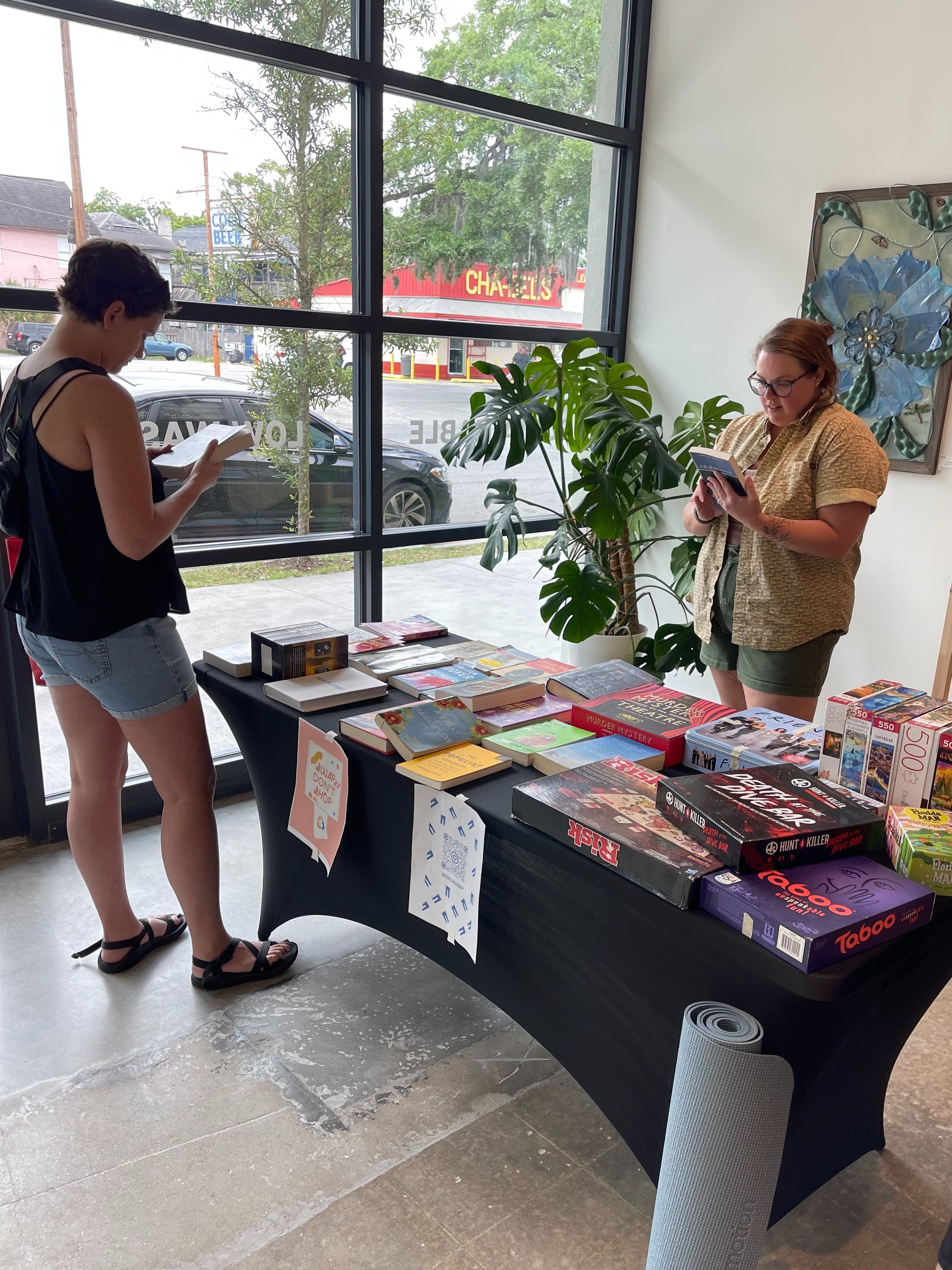The Benefits of Reuse and How We Can Start Implementing It Everyday
We all know what the word “reuse” means; to use again. But what about when it comes to sustainability? What does using again have to do with that?
Reuse is a simple concept and yet it is often overlooked when thinking about effective ways to decrease our carbon footprint. We want to use what we have, care for our things, love them, repair them, and make them last as long as possible. Long term, and done well this will create less waste in our world.
The environmental impacts of reuse are significant.
Decrease carbon emissions - Reusing items reduces the demand for new products, which in turn decreases the need for manufacturing processes that often emit greenhouse gases.
Prevent Pollution - Manufacturing new items and disposing of old ones can lead to various forms of pollution, including air and water pollution. Reusing items reduces the demand for new production and the subsequent pollution associated with it.
Saves Energy - The production of new items requires a significant amount of energy. By reusing items, the energy that would have been used in manufacturing new products is conserved.
Conserve Resources - Raw materials like timber, water, and minerals are used in the production of all items, when we reuse we are helping to preserve these valuable resources.
Reduce Demand for Single-use items - By promoting the use of reusable alternatives over single-use items like plastic bags and water bottles, reuse advocates for a reduction in the production and disposal of these environmentally harmful products.
The social impacts are also worth noting. When we reuse, we inspire change in the community around us. Reuse encourages responsible consumption and skill development.
Encourages Responsible Consumption - Reusing promotes a shift from a disposable mindset to a more responsible and sustainable way of consuming goods. It encourages people to think about the lifecycle of products beyond their immediate use.
Promotes Community Engagement - Events like clothing swaps and hobby swaps foster a sense of community and encourage people to interact, share, and engage in sustainable practices together.
Encourages Skill Development - Mending workshops teach valuable skills like sewing and mending. By repairing items instead of replacing them, individuals can extend the life of their belongings, reducing the need for new purchases.
Reuse for most people can mean donating items to nonprofit organizations. When operating correctly, they can do good work within communities. And for those who love a good bargain, thrift shopping is the ideal way to find new clothes and household items for cheap. These donation centers come with a big downside though. The supply of donations is endless and the demand is not as high. Consequently, these organizations end up sending an overwhelming amount of gently-used items to the dump. Donating items can be an option but it should not be the first!
With that being said, there are so many easy ways that you can begin implementing reuse into your daily life.
Take tote bags to the store - odds are you have accumulated many plastic or canvas tote bags over the past several years. These can be perfect for grocery shopping or when you are out running errands. Keep them in your car so they are always available when you need them.
Shop at the Lite Foot Company refillery - this gives you the opportunity to fill up the same dish soap bottle time and time again. You can do the same thing for all your personal hygiene items and household cleaning products.
Buy items that last -if you have the means, investing in a really nice jacket or a high-quality pair of shoes will last a lot longer and allow you to wear them for years to come.
Avoid single-use items - things such as paper towels, plastic water bottles, and Ziploc bags are convenient for sure. But all of these items have multi-use alternatives that you choose instead. Instead of paper towels, dish towels can be used to clean up messes. We all have at least one reusable water bottle we can take with us everywhere. Silicone zip-top bags are a game-changer when it comes to storage. You will never need to buy plastic bags again. These items are all reusable and significantly decrease waste.
Repair the items you care about - it’s so important to take care of the things we love. Take the time to get your watch a new battery before buying a new one. Fixing items that we already own and love is the ideal sustainable option, rather than the “easy” alternative of buying new every time something breaks.
For the items that you know aren’t trash, but have no use for anymore, Lite Foot Foundation has created a variety of events to solve that exact problem. Events like clothing swaps and hobby swaps foster a sense of community and encourage people to interact, share, and engage in sustainable practices together.
Monthly Clothing Swaps - Once a month, Lite Foot Foundation will host a clothing swap where you can bring up to 8 pieces of clothing or jewelry you would like to get rid of. You can leave with 8 new pieces of clothing or jewelry that came from someone else’s closet. Lite Foot Foundation’s clothing swaps are the perfect way to freshen up your wardrobe and meet other like-minded individuals in your community.
Hobby Swaps - for the hobby enthusiasts who try many activities but don’t stick with most. This event was created for you. Bring an old hobby and leave with a new one.
Book and Game Swaps- we are all guilty of having bookshelves full of already-read books and touched-once board games. This swap gives you the opportunity to pass on your favorite story to someone else and leave with a whole new selection of books to read and games to play.
Mending Workshops - This workshop will create a space to learn how to patch clothes or fix household items. Repairing the items that we have so we can continue to reuse them is an important skill to build.
For these events to be successful, we need the help of our community. We are looking for volunteers with sewing and mending experience so we can further educate and assist our neighbors on their reuse journey. If you are interested in volunteering your expertise please send us a note.
Reuse is a powerful practice that we should all be more diligent in exercising. Reusing items can decrease pollution and save energy. Attending any of our reuse events can help you learn key skills as you begin to implement reuse into your everyday life.
Visit our events page to RSVP for our next event.




